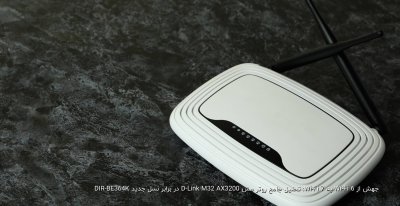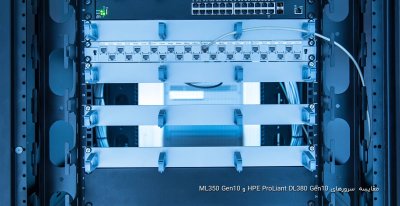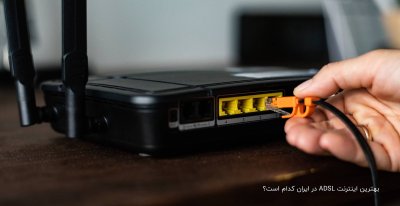CTSS (The Compatible TimeShare System, developed at MIT by Corbato, et al)
Incompatible_Timesharing_System (The Incompatible Timeshare System, developed at MIT for the DEC 10 / 20 mainframes)
THE operating system (by Dijkstra et al)
Multics (joint OS development project by Bell Labs, GE, and MIT)
Master programme developed for Leo Computers, Leo III in 1962.
See Operating systems timeline.
[edit]
Early, proprietary microcomputer OS
Apple Computer (initial version was ROM'd firmware together with Integer BASIC; later versions included a Microsoft BASIC)
Business Operating System (BOS) - cross platform, command-line based
Commodore PET, Commodore 64, and Commodore VIC-20,
The very first IBM-PC (3 OS offered to start, UCSD p-System, CPM-86, PC-DOS)
Sinclair Micro and QX, etc
TRS-DOS, ROM OS's (largely Microsoft BASIC implementations with file system extensions)
TI99-4
Flex (by Technical Systems Consultants for Motorola 6800 based microcomputers: SWTPC, Tano, Smoke Signal Broadcasting, Gimix, etc)
FLEX9 (by TSC for Motorola 6809 based micros)
mini-FLEX (by TSC for 5.25" disks on 6800 based machines)
[edit]
Proprietary
[edit]
Acorn
Arthur
ARX
RISC OS
RISCiX
[edit]
Amiga
AmigaOS
[edit]
Atari ST
TOS
MultiTOS
MiNT
[edit]
Apple/Macintosh
Apple DOS
A/UX
ProDOS
GS/OS
Mac OS
Mac OS X
Apple Darwin
[edit]
Be Incorporated
BeOS
BeIA
Zeta
[edit]
Digital/Compaq/HP
AIS
OS-8
ITS (for the PDP-6 and PDP-10)
TOPS-10 (for the PDP-10)
WAITS
TENEX (from BBN)
TOPS-20 (for the PDP-10)
RSTS/E (ran on several machines, chiefly PDP-11s)
RSX-11 (multiuser, multitasking OS for PDP-11s)
RT-11 (single user OS for PDP-11)
VMS (by DEC for the VAX mini-computer range; later renamed OpenVMS)
[edit]
IBM
PC-DOS (originally nearly indistinguishable from Microsoft MS-DOS)
OS/2 (aka MS-OS/2)
OS/2 Warp
Basic Operating System (first system released for the System 360, as an interim)
TOS
OS/360 (first OS planned for the System 360 architecture)
DOS/360
DOS/VSE
z/VSE (latest version of the VSE line)
VM/CMS
z/VM (latest version of the VM line)
MFT (later called OV/VS1)
MVT (later called OV/VS2)
SVS
MVS (latest variant of MVT)
TPF
OS/390
z/OS, Unix-like, (latest version of IBM mainframe OS)
OS/400
AIX (a version of Unix)
ALCS
IBSYS
[edit]
ICT/ICL
GEORGE
VME
DME
TME
[edit]
Microsoft
MS-DOS (version 6.22 is the last release)
Windows CE (compact edition, for handhelds)
Microsoft Windows
Windows 1.0
Windows 2.0 (for 80286)
Windows 3.0 the first version to make substantial commercial impact
Windows 3.1
Windows 95
Windows 98 there was a 98 2nd edition as well
Windows ME
OS/2
Windows NT (developed from OS/2 by a team led by David Cutler)
Windows NT 3.5
Windows NT 4
Windows 2000 (aka Windows NT v5.0)
Windows XP (based on Win2K internally; 2 versions: Home and Professional)
Windows Server 2003
Xenix (licensed version of Unix; sold to SCO in '90s)
[edit]
Sun Microsystems
Solaris, Unix-like
SunOS, Unix-like, (became Solaris)
Java Desktop System
[edit]
Other Proprietary Unix-like and other POSIX-compliant systems
Aegis/OS (Apollo Computers)
Cromix (Unix-emulating OS from Cromemco)
Coherent (Unix-emulating OS from Mark Williams Co. for PC class computers)
DNIX
Digital UNIX (which became HP's Tru64)
HP-UX from HP
Idris workalike from Whitesmiths
IRIX from SGI
Mac OS X from Apple Computer
NeXTSTEP
OS-9 unix-like RTOS. (Unix emulating OS from Microware for Motorola 6809 based microcomputers)
OS-9/68k (Unix emulating OS from Microware for Morotola 680x0 based computers; developed from OS-9)
OS-9000 (portable Unix emulating OS from Microware; one implementation was for Intel x86)
OSF/1
OPENSTEP
Rhapsody
RiscOS
SCO UNIX (from SCO, bought by Caldera who re-renamed themselves SCO)
System V (a release of AT&T Unix, 'SVr4' was the 4th minor release)
UNIflex (Unix emulating OS by TSC for DMA-capable, extended addresses, Mototola 6809 based computers; eg SWTPC, GIMIX, ...)
Ultrix (DEC's first version of Unix for VAX and PDP-11, based on BSD)
UniCOS
[edit]
Nonproprietary Unix-like
[edit]
Research Unix-like and other POSIX-compliant systems
Minix (study OS developed by Andrew S. Tanenbaum in the Netherlands)
UNIX (OS developed at Bell Labs ca 1970 initially by Ken Thompson)
Amoeba (research OS by Andrew S. Tanenbaum)
Plan 9 (networking OS developed at Bell Labs)
Plan 9, Inferno (networked OS originally from Bell Labs Computer Research)
[edit]
Open source Unix-like
BSD (Berkeley Software Distribution, a variant of Unix for DEC VAX hardware)
FreeBSD (one of the outgrowths of UC Regents' abandonment of CSRG's 'BSD Unix')
DragonFly_BSD forked from FreeBSD
NetBSD (one of the outgrowths of UC Regents' abandonment of CSRG's 'BSD Unix')
OpenBSD forked from NetBSD
Linux
GNU Hurd
SSS-PC Developed at Tokyo University
[edit]
Disk operating system
QDOS (developed at Seattle Computer Products by Tim Paterson for the new Intel 808x CPUs; also called SCP-DOS; licensed to Microsoft -- became MS-DOS/PC-DOS)
MS-DOS (Microsoft's now abandoned DOS variant)
PC-DOS (IBM's DOS variant)
DR-DOS (Digital Research's [later Novell, Caldera, ..] DOS variant)
FreeDOS (an open source DOS variant)
[edit]
Research non-UNIX
Mach (from OS kernel research at CMU; see NeXTSTEP)
Nemesis Cambridge University research OS - detailed quality of service abilities. http://www.cl.cam.ac.uk/Research/SRG/netos/old-projects/nemesis/
TUNES, 1994
V (operating system) from Stanford, early 1980s
[edit]
Generic/commodity, non-UNIX, and other
TripOS, 1978
MorphOS (by Genesi)
Control Program/Monitor (CP/M)
CP/M-80 (CP/M for intel 8080/8085 and Zilog Z80 from Digital Research))
CP/M-86 (CP/M for Intel 8088/86 from Digital Research)
MP/M-80 (Multi programming version of CP/M-80 from Digital Research)
MP/M-86 (Multi programming version of CP/M-86 from Digital Research)
GEM (windowing GUI for CP/M and DOS)
VisiOn (first GUI for early PC machines; not commercially successful)
4DOS (command-line user interface for DOS)
DESQView (multi-tasking windowing user interface for DOS)
DESQView/X (X-windowing GUI for DOS)
GEOS (popular windowing GUI for PC,Commodore,Apple computers)
4NT (command-line user interface for Microsoft Windows)
SkyOS (Commercial desktop OS for PCs)
NetWare (networking OS by Novell)
FLEX9 (by TSC for Motorola 6809 based machines; successor to FLEX, which was for Motorola 6800 CPUs)
SSB-DOS (by TSC for Smoke Signal Broadcasting; a variant of FLEX in most respects)
JavaOS
UCSD p-System (portable complete programming environment/operating system/virtual machine developed by a long running student project at the Univ Calif/San Diego; directed by Prof Ken Bowles; written in Pascal)
Oberon operating system/(developed at ETH-Zurich by Niklaus Wirth et al) for the Ceres and Chameleon workstation projects. see also Oberon programming language
AOS, now called Bluebottle (a concurrent and active object update to the Oberon operating system)
VME by International Computers Limited (ICL)
Pick (often licensed and renamed)
Primos by Prime Computer (sometimes spelled PR1MOS and PR1ME)
BS1000 by Siemens AG
BS2000 by Siemens AG
BS3000 by Siemens AG (functionally similar to OS-IV and MSP from Fujitsu)
VM2000 by Siemens AG
OSD/XC by Fujitsu-Siemens (BS2000 ported to a emulation on a Sun SPARC platform)
OS-IV by Fujitsu (based on early versions of IBM's MVS)
MSP by Fujitsu (successor to OS-IV)
[edit]
Hobby OS
AROS (Amiga Research Operating System)
Haiku (BeOS workalike)
ReactOS (Windows NT workalike)
AtheOS became Syllable
Syllable (a modern, powerful, independently originated OS)
Menuet is an extremely compact OS written entirely in assembly language
Tabos (a rescue/network/desktop system)
LainOS (FreeBSD-based project that aims to become a next-generation operating system. Inspired by Lain's "Navi" GUI from Serial Experiments Lain)
Panalix
Trion Operating System
NewOS
Visopsys
[edit]
Applications
[edit]
Personal digital assistants (PDAs)
Palm OS from Palm Inc; now spun off as PalmSource
Pocket PC from Microsoft
EPOC originally from Psion (UK), now from Symbian, preferred name now is Symbian OS
Windows CE Windows Compact Edition, from Microsoft
Linux on Sharp Zaurus and Ipaq
[edit]
Smartphones
Windows CE
Linux MontaVista Linux in Motorola's A760, E680
Symbian OS
[edit]
Router
IOS by Cisco
MikroTik RouterOS by MikroTik
[edit]
Microcontroller, Real-time operating system, embedded
Contiki
eCos
OSEK
Nucleus
QNX
VxWorks
ITRON
µCLinux
TRON OS developed by Ken Sakamura
ThreadX
INTEGRITY
Montavista Linux
OS-9 by Microware
LynxOS
RTOS
[edit]
Interpreted
Par-OS
J98
GWOS
Swodniw
[edit]
Fictional Operating Systems
Operating systems that have only appeared in fiction.
ALTIMIT_OS - From .hack
Hyper OS - From the movie Patlabor
Wheatonix - April fool's joke.
Digitronix - From The Hacker Files
Luna/X - Google's April Fool's joke, 2004 [1] (http://www.google.com/jobs/lunar_job5.html)
Copland OS - From Serial Experiments Lain Navi computer, which is also the codename of a never released Apple Computer OS (see Vaporware).



 :arrow:
:arrow: 









